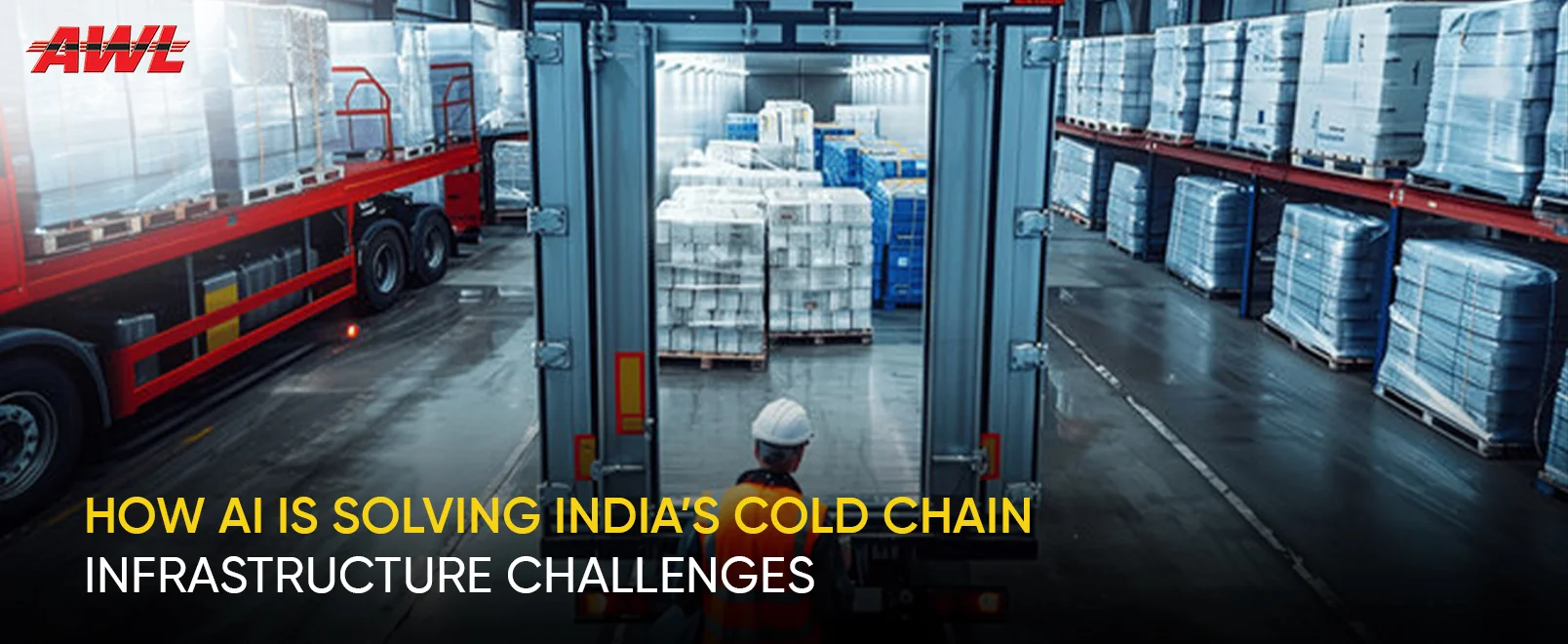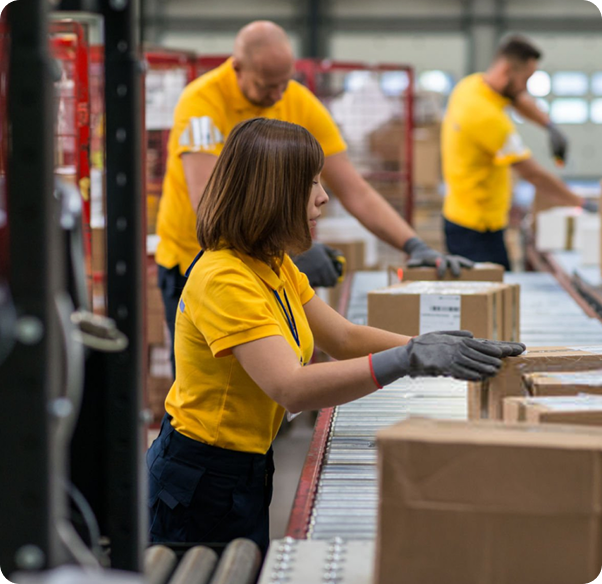

India has always struggled with its cold chain system. Too many products spoil before they reach stores or hospitals. Vegetables wilt in transit. Vaccines lose their potency because someone forgot to check the freezer. It’s not that India lacks effort. The problem lies in how things are managed. Long distances, power cuts, bad roads, and outdated storage make the process risky.
Now something new is happening. Artificial Intelligence is entering the picture. Slowly, quietly, it’s fixing problems that have existed for decades.
The Problem We Keep Ignoring
Let’s be honest — the cold supply network in India has always been fragile. The country has thousands of storage units, but many of them are old or unevenly spread out. In some areas, there are too many. In others, none at all. The result is waste. Tons of fruits, milk, seafood, and even vaccines go bad every year.
Farmers lose money. Retailers lose trust. Consumers pay higher prices. Everyone loses something. What’s worse, no one knows exactly when or where the problem started. That’s where AI comes in.
How AI Makes a Difference
AI doesn’t just collect data. It studies patterns. It learns. It connects the dots that people often miss. Sensors inside cold trucks and warehouses send live information — temperature, humidity, and movement — straight to a dashboard. When the temperature starts to rise, the system alerts the team before damage happens. This small action saves entire shipments. That’s the kind of power AI brings.
Cold chain companies in India are now relying on these tools to keep products safe and maintain standards. The result? Fewer losses, better efficiency, and happier clients.
Smarter Planning on the Road
Moving perishable items across India is never easy. Traffic, weather, and road conditions keep changing. In a traditional setup, drivers guess the best route. Sometimes they’re right. Often, they’re not. AI changes that completely.
Machine learning tools now plan routes based on real-time updates. They check which path will take less time, avoid heat zones, and save fuel. This makes cold chain transport more reliable. Deliveries arrive on time, and the goods stay in perfect condition.
The new systems are learning every day. They remember what happened last week, last month, even last year. Over time, they become better at predicting what could go wrong before it does.
Predictive Maintenance: Fixing Problems Before They Happen
If you’ve ever worked in cold storage, you know one broken cooling unit can ruin everything. Repairs usually come after the damage is done. AI changes that, too.
Sensors inside the equipment track how the machines behave. If they start using more power or cooling less efficiently, AI marks it as a warning sign. The maintenance team gets a message instantly. They act before the fault becomes serious.
Many cold chain companies in India have started adopting this method. It saves cost, avoids downtime, and protects the products inside. It’s like having a technician who never sleeps.
The Power of Real-Time Visibility
One of the biggest challenges in cold logistics is not knowing what’s happening in real time. A manager sitting in Delhi might have no idea what’s going on inside a truck heading to Chennai. AI changes that story completely.
With connected sensors and cloud dashboards, every detail becomes visible. The temperature, the route, even how long the door stayed open — all this is updated every second.
AWL India uses these systems in its operations. Their teams monitor every shipment from storage to delivery. If the temperature changes or if a delay occurs, they act immediately. That’s how they maintain reliability for sensitive goods like medicines, dairy, and fresh produce.
This level of visibility also helps with compliance. In industries where safety rules are strict, AI-generated records make audits faster and easier.
Cutting Waste and Saving Energy
Every spoiled product is money lost. In a country like India, that loss runs into billions. AI helps reduce this waste by studying what causes it. It looks at where goods are stored, how long they stay there, and how they move. Then it suggests better ways to use the same resources.
When cold chain companies in India apply these insights, they see clear results. Less waste. Lower energy bills. Better use of storage space.
AI can also control cooling systems automatically. It adjusts temperature based on what’s stored inside and outside weather conditions. That keeps power use in check without compromising on quality. Over time, it builds a system that is both sustainable and profitable.
Safer Food and Medicine
Food and medicine safety is one area where AI really shines. Small temperature changes can make a big difference in quality. AI doesn’t just monitor these changes — it reacts instantly.
At AWL India, smart systems track every shipment around the clock. The company handles food and pharmaceutical goods for clients who cannot afford errors. AI helps them keep these goods in the right condition throughout the journey.
In the food sector, AI also measures freshness using humidity and gas data. This allows quick sorting of products nearing expiry, reducing waste even more. Consumers get better-quality food. Companies save money. Everyone benefits.
AI in the Warehouse
Warehouses used to be simple storage spaces. Now they’re becoming intelligent centers of control. AI-based systems inside cold storage units adjust cooling automatically. They know which racks are full, which ones are empty, and which need rotation.
AWL India has invested heavily in such technology. Their smart warehouses use AI-driven management systems that track every movement, from entry to dispatch. These systems are linked with clients’ supply chains, giving real-time visibility and control.
This automation reduces human error and speeds up operations. It also makes scaling easier when demand increases suddenly, as seen during peak seasons or vaccine rollouts.
Closing the Infrastructure Gap
AI alone can’t build new roads or warehouses. But it helps make the best use of what already exists. It finds where the system breaks down most often and where investment is needed.
This data-driven approach guides both companies and policymakers. Cold chain companies in India can focus on high-demand regions, while government bodies can plan better public infrastructure. Together, these steps can strengthen the entire network.
Even small farmers benefit. With access to AI-backed systems, they can store their produce longer and sell it at better prices. That’s how technology begins to reach the grassroots level.
Conclusion
AI is not a distant dream anymore. It’s already shaping India’s cold supply chain every day. The systems are becoming smarter, faster, and more accurate. The result is a supply chain that wastes less, delivers faster, and stays transparent from end to end.
In the coming years, automation, robotics, and predictive analytics will make cold chain logistics even more efficient. The companies that adapt early will lead the way.
AWL India stands among those leaders. By using AI to track, plan, and optimize every stage of the journey, it sets a new standard for reliability. For clients and consumers alike, that means one thing — products that arrive fresh, safe, and on time.
The technology may be new, but the goal remains the same: to build a smarter, stronger, and more dependable cold chain system for India.

Kuldeep Kamboj
Head of Digital Marketing

